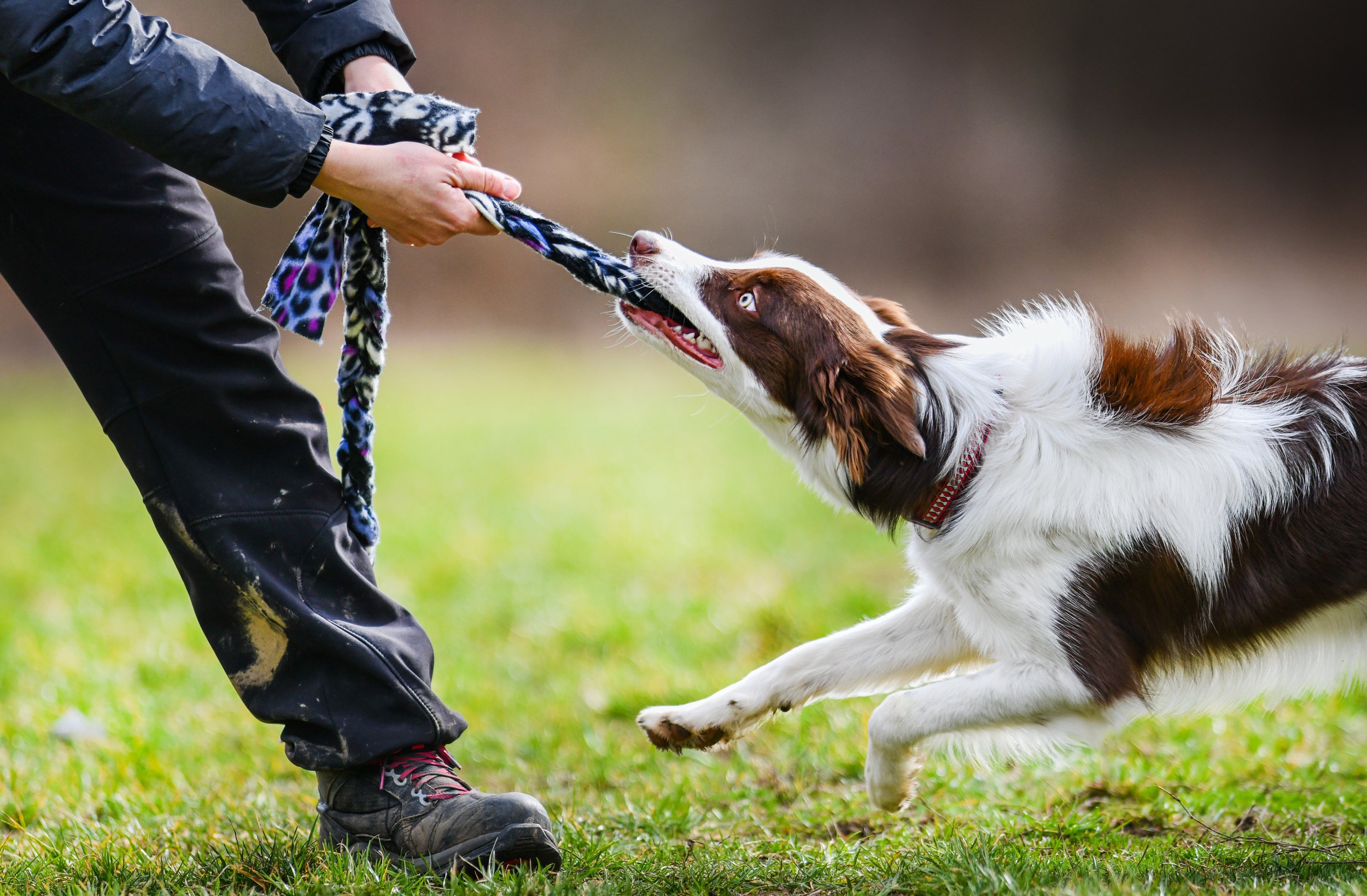Play. Why It’s Important and How To Do It
Why is playing with your dog important?
What do you love to do? Do you love interacting with people? Do you love making things with your hands? Do you love helping people in need? Do you love working with animals? Do you love being active? Look at the things you love and make up who you are and compare those things to the interests of your parents and grandparents. Where did these traits of yours come from? Can you name which parent and grandparent supplied these pieces to your genetic makeup? And most likely your parents fell in love and around 20-30 years old and then made you. It didn’t work this way for your dog. Your dog may be the product of two dogs falling in “love” by happenstance, but most likely somewhere in your dogs genetic line, the breeds that make up your dog were created artificially. We picked the best chasers and the dogs that lived for chasing and bred them with each other. We picked the best retrievers and guardians and biters and did the same. And dogs don’t reproduce every 20-30 years like humans do, they reproduce much more often than that advancing these selected genetics much more quickly. So the genetics that make you like the things you like are exponentially more exaggerated in your dog. Now imagine someone told you you couldn’t do the things you love. How would you feel? Anxious, right? Imagine telling your dog with their exaggerated genetics for chasing that they cannot chase. That’s terrible! And will cause anxiety! And most likely they’ll end up chasing something anyway. It will just be something we don’t want them to chase, or retrieve, or guard, or bite. This is why we play. Our dogs need to know where they can be who they are and feel really good about it. It builds confidence, prevents anxiety, and prevents as well as rehabilitates problem behaviors which have resulted from misplaced genetic behavior.
How do I get my dog to play with me?
You have to want to. Really want to. You have to be sincere. Dogs are experts at our nonverbal communication, and if we don’t want to be there, they won’t either. Be sincere and show your dog you want to have this fun interaction with them. Try to play and don’t give up quickly. If your dog doesn’t reciprocate (I know this can be tough), keep having fun playing with the toy on your own while occasionally inviting them to play with you again. Be the puppy who keeps instigating the other puppies to join in the fun. Act like the toy you have is the coolest toy and your pup should want to steal it. As a predator, your dog’s genetics tell them to be most active at morning and again at dusk. Try to play during one of these times for optimal results! For a more in depth look at how to play with your dog, check out “Chase and Catch 2.0” and “The Possession Games” from Ivan Balabanov’s video library here:
https://academy.trainingwithoutconflict.com/a/odyju
How should I play with my dog?
The short answer is how ever your pup wants! Just play! Engage with your dog in the way they find most fulfilling. However, we can get more benefits for sure out of certain games, especially games with toys. Toys allow us to create mutual objectives as well as give your dog something they can bite much harder than they can bite your arm. Tug and fetch tend to be the games with the most benefit and which are appealing to most dogs but certainly many other games from searching and hunting games can be very rewarding!. Playing is always a good activity, but if we can mold play into games with rules and objectives, then play becomes even more fulfilling. The game of soccer will always be more fun than kicking a soccer ball around because the players know when they are getting better as there are rules and goals.
How does play help obedience?
Play creates a relationship and a language between you and your pup which helps them learn you are both on the same team as well as how to communicate with you. Play is also a much stronger motivator than treats will ever be (just ask a dog who knows how to play if they prefer the toy or the treat), and motivation is of primary importance in learning. It is far too much information to explain how to create amazing obedience through play here, but a dog who loves to play is a very easy dog to train because they are already super interested in you and motivated to figure out how to play. Training will only take you relationship to more profound and fulfilling levels!




